Putu Dyatmikawati
From BASAbaliWiki
Revision as of 12:50, 16 October 2021 by Dewayu Putri (talk | contribs)
- Full Name
- Putu Dyatmikawati
- Pen Name
- Putu Dyatmikawati
- Photograph by
- Tribun Bali
- Link to Photograph
- https://bali.tribunnews.com/2015/01/18/ini-loh-rektor-perempuan-pertama-di-universitas-dwijendra?page=1
- Website for biography
- Place
- Denpasar
- Related Music
- Related Books
- Related Scholars Articles
- Inheritance Rights of Women Based on Customary Law
- Obligations in “Pada Gelahang” Marriage System from the Perspective of Balinese Customary Law
- Pada Gelahang Marriage System in Customary Law-based Community in Bali Province, a Review of Undang-Undang No. 1 Tahun 1974 about Marriage
- The Legal Status of Established Business in The Pekraman Village (from The Perspective of Customary Law in Bali Province)
Biography
In English
In Balinese
In Indonesian
Examples of work
Nothing was added yet.

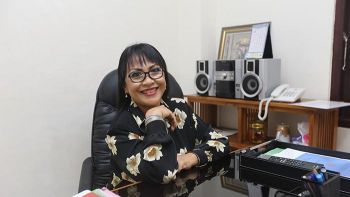
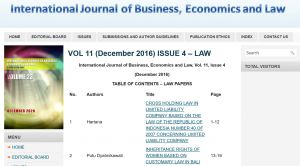
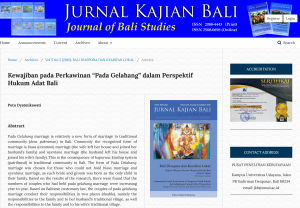
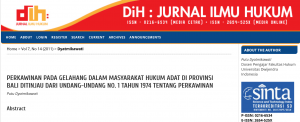
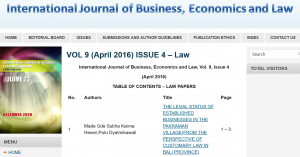





Enable comment auto-refresher